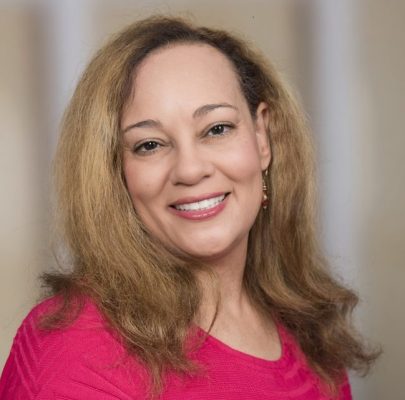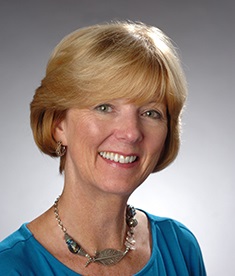In classrooms and residence halls across campus earlier this fall, small groups of new students came together to connect with their peers through exploring their differences and similarities—to learn more about themselves and others.
As part of the newly redeveloped First-Year Experience Initiative, the inaugural SEM 100 Shared Reading Discussion engaged first-year and transfer students in conversations and activities around the themes of identity, belonging, diversity, inclusion, and health and wellness.
For an overwhelming majority of the students, the experience was rewarding, and appreciated, in their transition to Syracuse, according to the results of a student survey.

Kira Reed
“In the survey responses, we see that students found value in their peer discussions and believed facilitators did well in providing a supportive environment for discussions. These shared reflections on this pilot program will aid us in strengthening the first-year experience,” says Kira Reed, co-chair of the First-Year Experience Initiative Steering Committee, Provost Faculty Fellow and chair of the Senate Committee on Curricula. “The students’ responses and feedback will help guide us further as we look to meet the initiative’s goals to build a shared community, enhance students’ cultural skills and promote healthy habits.”
The five-week shared experience, which enrolled 3,778 students, was designed with learning objectives to help students better understand implicit and unconscious bias, define and give examples of verbal and non-verbal communication skills and identify campus-based resources to help them succeed at Syracuse University.
The starting point for the shared reading discussion series was comedian Trevor Noah’s book, “Born a Crime,” which was provided to all first-year and transfer students over the summer. Led by either a faculty or staff lead facilitator and also a peer facilitator, groups of about 20 students engaged in discussions around the specific themes and current issues.
For first-year student Zarah Rose Durst, the experience was a welcoming space to connect with others and share different perspectives.
“I found it very valuable to have a safe place in which I could talk about issues that are controversial, and how they affect me, as well as listen to how they affect others,” says Durst, who is pursuing a degree in the School of Architecture. “I grew up in a very small New England farm town where diversity is not a defining factor. I love coming to the University as it allows me to interact with and share ideas with people of different backgrounds, and this experience allowed me to do exactly that.”
The student survey showed that a majority of the 66.1 percent (or 2,496) of students who responded agreed that SEM 100 achieved its learning objectives, the facilitator met expectations and the activities were valuable to their experience.
Specifically, some of the results included the following:
- In regards to meeting learning goals, 83.6 percent agreed they were able to identify complex sources of identity, and 80.7 percent agreed they were able to identify the differences between implicit and unconscious bias.
- Regarding the expectations on the facilitators, a majority of the students agreed that their facilitator maintained an atmosphere of respect and trust (96.5 percent) and encouraged everyone to participate (92.8 percent).
- In response to questions about the classroom activities, students found the activities, including exploring students’ diverse experiences and identifying their personal core values, were valuable to the experience (55.3 percent and 54.6 percent, respectively).
The Shared Reading Discussion is a key component of the new First-Year Experience Initiative that also includes the Be Well Expo, a health and wellness fair that was held in September; the upcoming appearance of Noah at the 2019 Rev. Dr. Martin Luther King Jr. Celebration in January; and the continuing development of a unified first-year experience course.
In developing a new student experience, the First-Year Experience Initiative Steering Committee has engaged all facets of the campus community, including nearly 85 students, faculty and staff involved in the initiative’s subcommittees.

Amanda Nicholson
“This is the first time in over 20 years that this many people have come together to thoughtfully create a new way to welcome our new students to campus. The experience itself to develop a multifaceted approach to the first-year experience has been very rewarding, and we have learned from the students’ experiences, which will continue to inform our work,” says Amanda Nicholson, assistant provost, dean of student success and co-chair of the First-Year Experience Initiative Steering Committee.
“One of the biggest benefits for students is that they have met other students who they probably would not have met otherwise on campus, and also connected with lead and peer facilitators who they also wouldn’t likely meet,” Nicholson says. “They have shared experiences and perspectives, which has been valuable to their academic and personal growth.”
Nicholson also notes that the high response rate provides a significant level of confidence in the survey results, which also included comments that will help improve the shared reading discussion sessions for transfer students this spring.
The University has learned some valuable lessons from the feedback. In their comments, students recommended that the book be incorporated into the sessions earlier and more extensively; starting the sessions at the beginning of the semester and earlier in the day; and having a more comfortable place to hold conversations, rather than the traditional classroom.
“Following the recommendation of our facilitators and students, the five-week sessions will start sooner and the book will be used in the first day, along with notable themes from Trevor Noah’s visit,” Reed says.
Members of the First-Year Experience Initiative Steering Committee are also working on a long-term plan to establish a unified, permanent first-year experience for all Syracuse University students.
